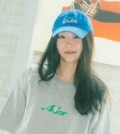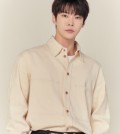- California Assembly OKs highest minimum wage in nation
- S. Korea unveils first graphic cigarette warnings
- US joins with South Korea, Japan in bid to deter North Korea
- LPGA golfer Chun In-gee finally back in action
- S. Korea won’t be top seed in final World Cup qualification round
- US men’s soccer misses 2nd straight Olympics
- US back on track in qualifying with 4-0 win over Guatemala
- High-intensity workout injuries spawn cottage industry
- CDC expands range of Zika mosquitoes into parts of Northeast
- Who knew? ‘The Walking Dead’ is helping families connect
South Korea questions North Korea’s UN membership

President Park Geun-hye, of South Korea, addresses the 69th session of the United Nations General Assembly, at U.N. headquarters, Wednesday, Sept. 24, 2014. (AP Photo/Richard Drew)
By Kim Hyo-jin
South Korea is questioning North Korea’s eligibility to be a member of the United Nations in connection with its recent provocations in breach of U.N. resolutions.
During a U.N. open discussion Monday on the U.N. charter’s principles and goals, South Korea’s U.N. ambassador Oh Joon questioned whether North Korea still has the right to be a U.N. member after reneging on membership obligations.
“Twenty-five years ago, the DPRK solemnly pledged to comply with the obligations of the U.N. Charter as a new member, but during the past decade, the DPRK has persistently violated all Security Council resolutions on the DPRK,” Oh said.
He was referring to the North’s military provocations such as its Jan. 6 nuclear test and Feb. 7 long-range rocket launch. The DPRK is the acronym of North Korea’s official name, the Democratic People’s Republic of Korea.
“This is not only a direct challenge to the authority of the Security Council, but also a contradiction to both the letter and spirit of the pledge it made. This breach of obligation by the DPRK calls into question its qualification as a member of the United Nations,” Oh added.
South Korea’s Deputy U.N. Ambassador Hahn Choong-hee continued questioning the North’s qualifications during a meeting of the Special Committee on the Charter of the U.N. the following day.
It is the first time that South Korea has taken issue with the North’s U.N. membership since the two Koreas jointly entered the international body in 1991.
The government’s move is seen as an attempt to put further pressure on the North by isolating the country from the international stage in line with its hard-line approach toward the reclusive country, according to analysts.
However, they cast doubt over whether South Korea’s move will pay off.
“It is unlikely to happen, as suspension of U.N. membership also needs the agreement of the 15-member Security Council (UNSC) which includes China and Russia,” said Lee Jang-hie, an emeritus professor of the law school at Hankuk University of Foreign Studies.
According to article 5 of the U.N. Charter, a U.N. member, against which preventive or enforcement action has been taken by the UNSC, may be suspended from the exercise of the rights and privileges of membership upon the recommendation of the UNSC. The “recommendation” should be made in the form of a UNSC resolution, Lee noted.
Cho Chang-beom, vice president of World Federation of United Nations Associations, also said it’s hardly expectable, noting other countries like Syria and Iran have reneged on U.N. obligations, but calls have yet to be made for suspension of their membership.
“We can ask North Korea to respect international regulations like human rights laws because it is a member of the international community,” Lee added. “It is more beneficial for us to leave the country as a U.N. member.”
For its part, the Ministry of Foreign Affairs said it will concentrate on drumming up greater support among its allies for harsher sanctions against North Korea, instead of immediately seeking to strip the North of its U.N. membership.
The ministry said South Korea and the United States have agreed to work harder on making a stronger and more effective sanctions resolution in the UNSC.















